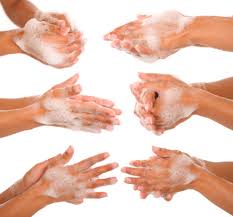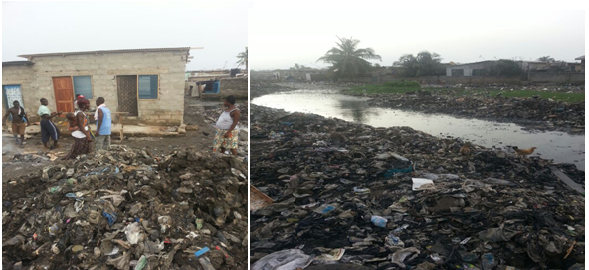 Hand washing or hand hygiene is the act of cleaning one’s hands with or without the use of water or another liquid, or with the use of soap for the purpose of removing soil, dirt, and/or microorganisms.
Hand washing or hand hygiene is the act of cleaning one’s hands with or without the use of water or another liquid, or with the use of soap for the purpose of removing soil, dirt, and/or microorganisms.
The main medical purpose of washing hands is to cleanse the hands of pathogens (including bacteria or viruses) and chemicals which can cause personal harm or disease.
People can become infected with respiratory illnesses such as influenza or the common cold, for example, if they do not wash their hands before touching their eyes, nose, or mouth.
Hand washing has the following health benefits;
• Helps minimize the spread of influenza
• Diarrhea prevention
• Avoiding respiratory infections
• A preventive measure for infant deaths at their home birth deliveries
• Improved hand washing practices have been shown to lead to small improvements in the length growth in children under five years of age.
In developing countries, childhood mortality rates related to respiratory and diarrhea diseases can be reduced by introducing simple behavioral changes, such as hand washing with soap. This simple action can reduce the rate of mortality from these diseases by almost 50 percent.
Substance Used in hand washing
- Soap and detergents
Removal of microorganism from skin is enhanced by the addition of soaps or detergents to water. The main action of soaps and detergents is to reduce barriers to solution, and increase solubility. Water is an inefficient skin cleanser because fats and proteins, which are components of organic soil, are not readily dissolved in water. Cleansing is, however, aided by a reasonable flow of water.
- Water temperature
Hot water that is comfortable for washing hands is not hot enough to kill bacteria. Bacteria grow much faster at body temperature (37 C). However, warm, soapy water is more effective than cold, soapy water at removing the natural oils on your hands which hold soils and bacteria. Contrary to popular belief however, scientific studies have shown that using warm water has no effect on reducing the microbial loads on hands.
- Solid soap
Solid soap, because of its reusable nature, may hold bacteria acquired from previous uses. Yet, it is likely that any bacteria are transferred to users of the soap, as the bacteria are rinsed off with the foam.
4. Hand antiseptics
A hand antiseptic or hand sanitizer is a non-water-based hand hygiene agent. Hand sanitizers containing a minimum of 60 to 95% alcohol are efficient germ killers. Hand sanitizers are most effective against bacteria and less effective against some viruses.
LET’S WASH OUR HANDS TO MINIMIZE INFECTIONS.
By
Mabel K.Asafo and Irene Owusu Opoku





